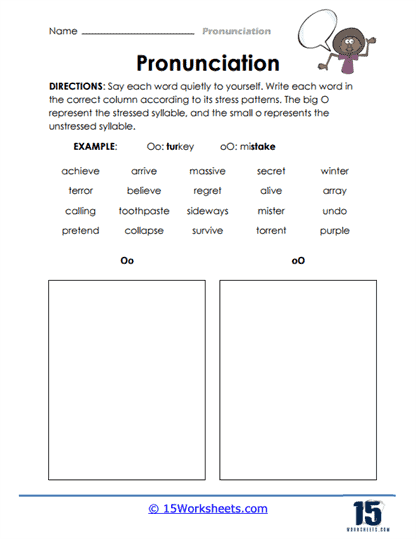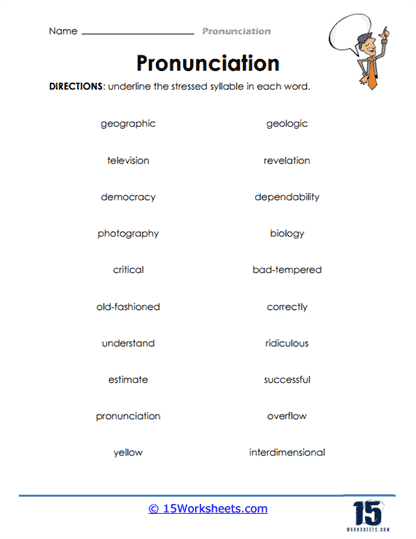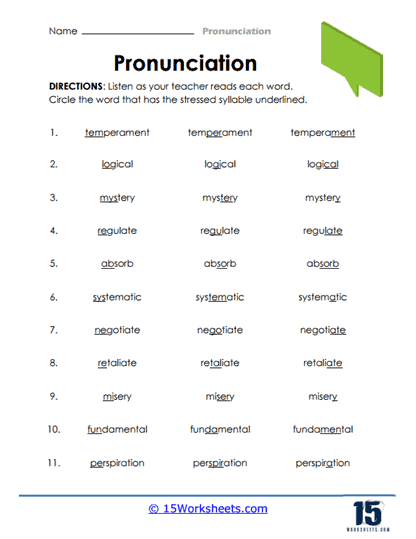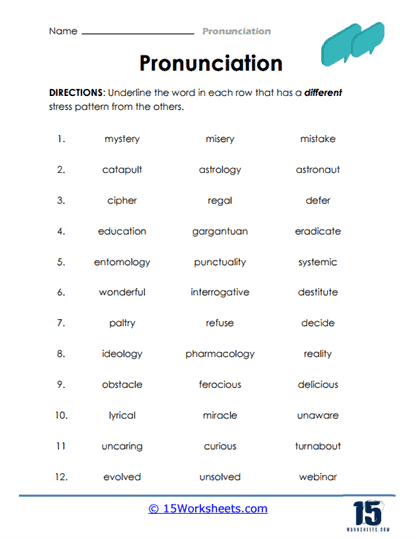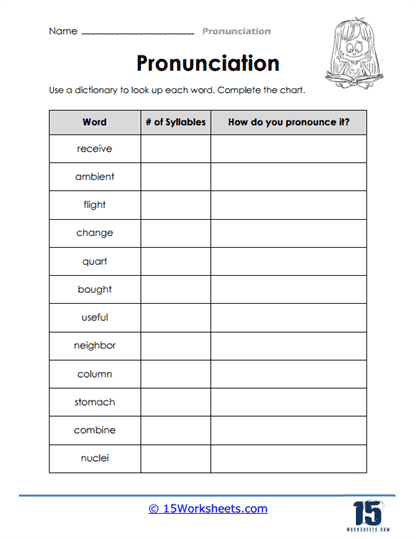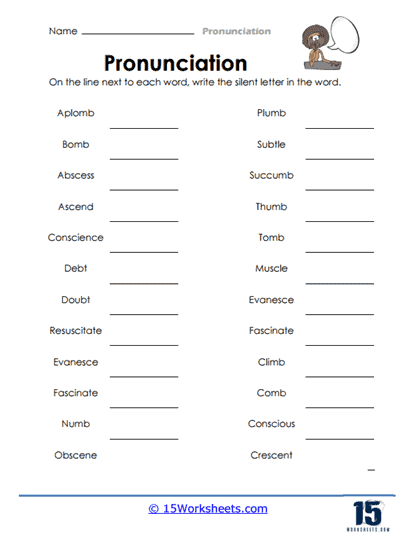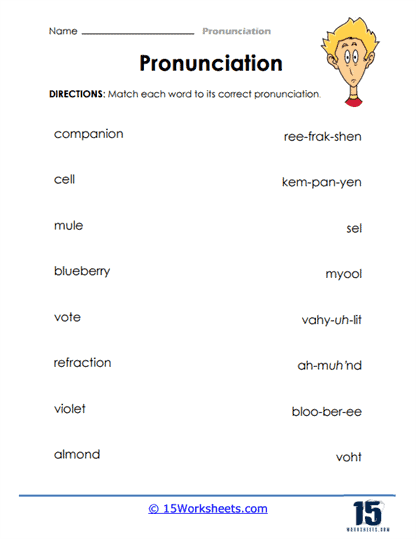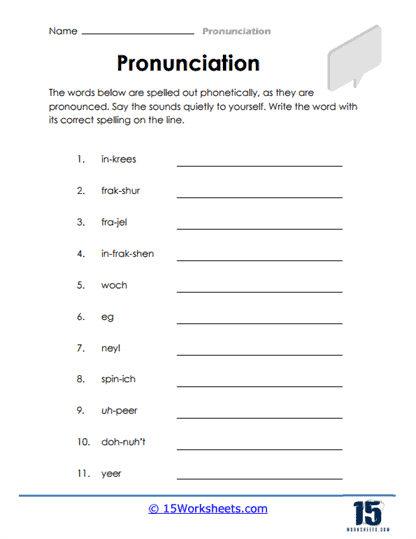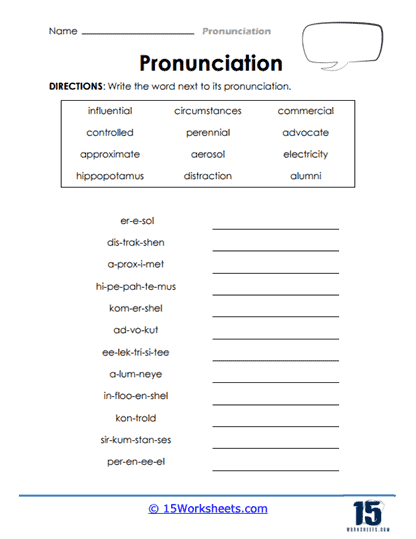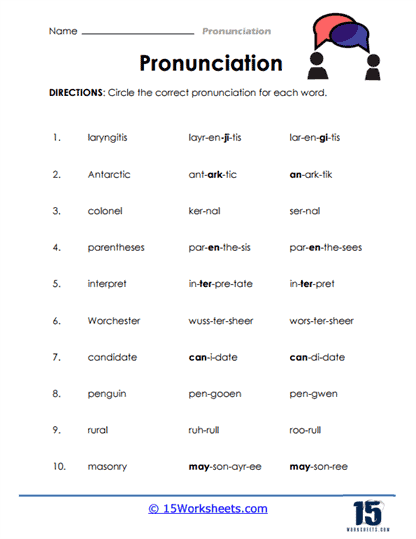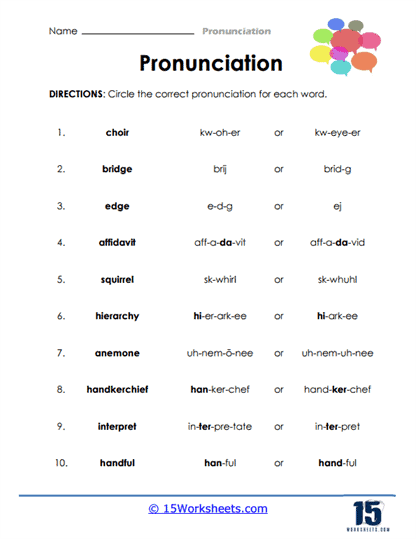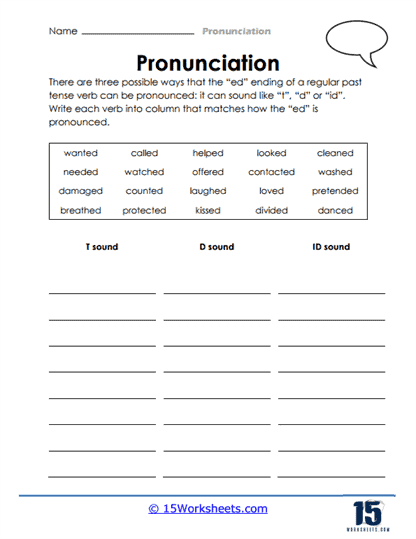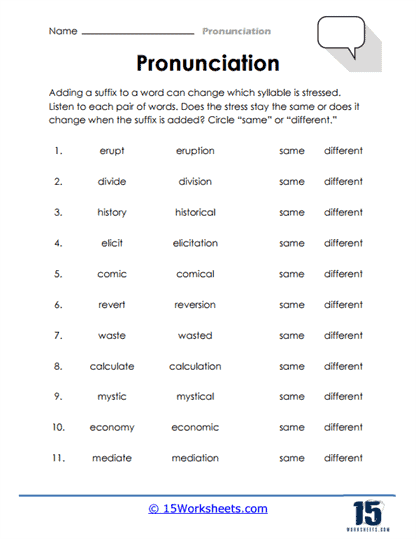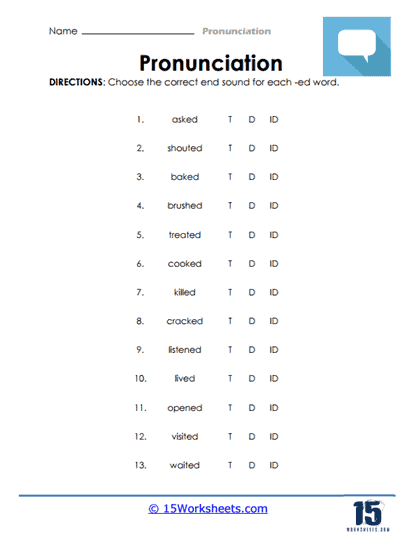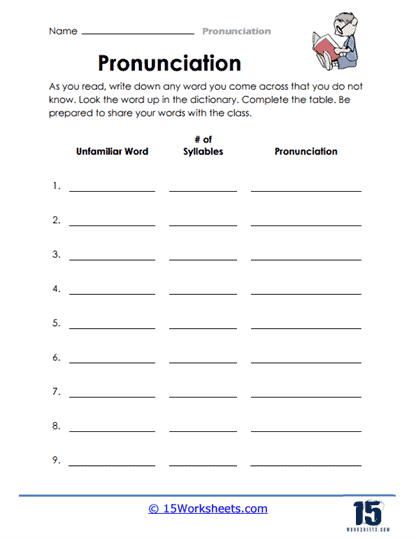Pronunciation Worksheets
All About These 15 Worksheets
Pronunciation is a critical aspect of effective communication, and it plays a pivotal role in language development and comprehension. Clear and accurate pronunciation ensures that messages are conveyed clearly and understood by others.
To assist students in achieving pronunciation excellence, we present a collection of Pronunciation worksheets. These worksheets have been thoughtfully designed to provide students with structured and engaging opportunities to practice and refine their pronunciation skills.
What are Pronunciation Worksheets?
Pronunciation Worksheets are educational resources designed to help students practice and improve their pronunciation of words and sounds in a given language. These worksheets often include various activities, such as listening and repeating exercises, tongue twisters, minimal pairs, and word stress exercises.
Improving pronunciation is important for effective communication and comprehension in any language. Here are some strategies and tips to help you enhance your pronunciation skills:
Listen Carefully – Actively listen to native speakers, either in person or through recordings, podcasts, or videos. Pay attention to the rhythm, stress patterns, and intonation of their speech. This will help you develop a sense of the natural flow of the language.
Practice Regularly – Consistent practice is key to improving pronunciation. Read aloud, repeat phrases, or engage in conversations with native speakers whenever possible. The more you practice, the more comfortable you will become with the sounds and patterns of the language.
Focus on Individual Sounds – Identify and practice the sounds that are difficult for you. Work on mastering these sounds by repeating them in isolation and within words or phrases.
Learn Phonetics – Study the phonetic alphabet and become familiar with the symbols that represent each sound. This will help you understand the pronunciation of words more accurately, especially when using a dictionary or other language resources.
Record Yourself – Record yourself speaking the language and listen to the playback. This will help you identify areas where your pronunciation needs improvement. Compare your recordings to those of native speakers to pinpoint differences and work on specific aspects.
Use Tongue Twisters – Practice tongue twisters or phrases with challenging sound combinations. This can help train your mouth muscles to produce difficult sounds more easily and accurately.
Imitate Native Speakers – Mimic the speech of native speakers as closely as possible, trying to match their rhythm, stress patterns, and intonation. This will help you develop a more natural-sounding accent.
Get Feedback – Ask native speakers or language instructors for feedback on your pronunciation. They can provide valuable insights into areas that need improvement and offer guidance on how to correct specific issues.
Learn the Rules – Study the pronunciation rules of the language, including stress patterns, syllable breaks, and intonation. Understanding these rules will help you apply them correctly when speaking.
Be Patient – Improving pronunciation takes time and effort. Don’t be discouraged if progress is slow. Keep practicing, and remember that even small improvements can make a big difference in your overall communication skills.
By incorporating these strategies into your language learning routine, you can work towards improving your pronunciation and ultimately enhance your communication skills in the target language.
The Importance of Pronunciation
Understanding and mastering pronunciation is of paramount importance for several reasons:
- Effective Communication: Pronunciation is a cornerstone of effective communication. Clear and accurate pronunciation ensures that spoken words and sentences are understood by others, fostering successful interactions.
- Listening Comprehension: Accurate pronunciation enhances students’ listening comprehension skills. It allows them to better understand spoken language in various contexts, including conversations, lectures, and presentations.
- Language Fluency: Fluent pronunciation contributes to overall language fluency. Students who can articulate words and sentences clearly are more confident and proficient speakers.
- Language Comprehension: Proper pronunciation aids in language comprehension. It helps students recognize and understand new vocabulary and expressions as they encounter them in written or spoken form.
This collection of Pronunciation worksheets is a valuable resource for educators and students committed to improving their pronunciation and communication skills. Proficiency in pronunciation is not just an academic endeavor; it is a skill that directly impacts an individual’s ability to connect with others, express ideas clearly, and navigate social and professional situations effectively.
By using these engaging worksheets, students will strengthen their ability to articulate words and sentences with clarity and confidence. This collection is an investment in their future success, ensuring they have the communication skills needed to excel in various aspects of life, from academic presentations to job interviews and everyday conversations.

